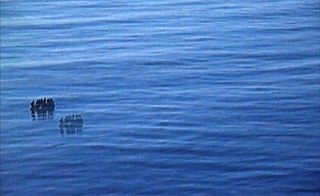A shift in perspective
„And-Ek Ghes‟ und „Havarie‟ von Philip Scheffner

The Forum section features two films by the German director Philip Scheffner. Both are about fleeing and migration – from an unusual perspective.
While the subject of fleeing and migration has preoccupied the Berlinale for some time, perhaps a closer look is being taken this year. Les Sauteurs (Those Who Jump), the Danish contribution to the film festival, shows for example hundreds of migrants at the border fence of the Spanish enclave of Melilla in Morocco. What is special in this case is that the filmmakers handed over their camera to Abou from Mali rather than shooting the film themselves.
A Touch of Tragedy
This is precisely the kind of urgently needed shift in perspective that is also achieved by the German documentary filmmaker Philip Scheffner in And-Ek Ghes, in which three Roma families from Romania document their everyday lives after arriving with high hopes in Berlin. While the result refutes numerous stereotypes, its charm is its most intriguing quality. Chilly Germany seems like paradise to the new arrivals, while sparse East German landscapes remind them of their beloved Bollywood films. Colorado Velcu, one of the fathers, turns out to be a particularly painstaking observer who records his impressions in a diary. An amateur organist, he also fosters his family’s musical talents and makes a wonderful slushy music video with them.It comes as no surprise that a touch of tragedy also surrounds Velcu nonetheless. Berlinale fans will already be acquainted with him from Scheffner’s 2012 documentary Revision, which re-examined his father’s death in a mysterious “hunting accident” on the Polish border. It is not all sweetness and light in And-Ek Ghes either: a construction worker, Velcu has to wait months for his paltry wages and for recognition from the German authorities. Some members of the family soon continue their journey to Spain.